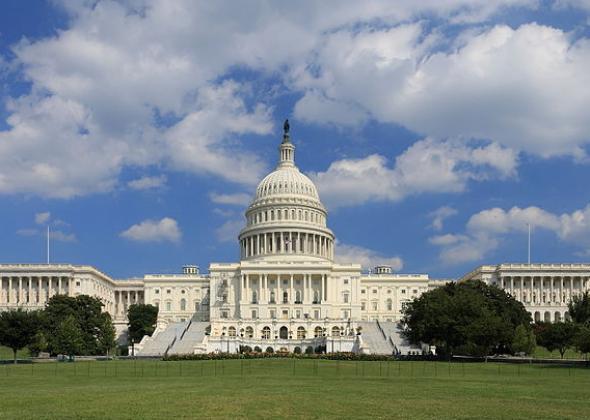As advocates continue the fight to pass explicit sexual orientation and gender identity nondiscrimination protections in Congress, we should take a moment to celebrate the growing understanding that discrimination against LGBT people is a form of sex discrimination. Why is that worthy of celebration? Because sex discrimination is already prohibited under federal law.
This month marks the second anniversary of the Equal Employment Opportunity Commission’s landmark ruling in Macy v. Holder that discrimination against transgender people violates the existing federal ban on sex discrimination in employment found in Title VII of the Civil Rights Act of 1964. The EEOC’s ruling in Macy built on earlier wins in court, including a lawsuit brought by the ACLU against the Library of Congress on behalf of Diane Schroer. In that case, a federal district judge ruled that discriminating against someone for changing genders violated Title VII’s ban on sex discrimination.
Just last month, a federal district judge, in yet another LGBT employment discrimination case against the Library of Congress, ruled that a gay man who is alleging discrimination in violation of Title VII can move forward with his lawsuit.
This trend demonstrates the importance of narrowing the unprecedented, sweeping religious exemption currently on the table in the federal Employment Non-Discrimination Act, known as ENDA.
Title VII provides houses of worship and religiously affiliated organizations like universities and hospitals with an exemption from the law’s ban on discrimination on the basis of religion, allowing them to prefer members of their own faith in hiring. The purpose of this exemption is to permit a religious organization to require those who carry out its work to share its faith (and applies even when an employee’s work is not religious). It is not, however, a blank check for these organizations to discriminate for any reason they want, including on the basis of sex.
In fact, there is no religious exemption from Title VII’s prohibition on sex discrimination. When religious organizations have argued that Title VII’s exemption should allow them to pay women less because of religious teachings about the appropriate roles of men and women, courts have rightly said no.
Yet the religious exemption in ENDA opens the door for religiously affiliated organizations to engage in employment discrimination against LGBT people—for any reason.
This exemption is so broad that it could leave a transgender doctor at a hospital or a gay food-services worker at a university without protection from workplace discrimination. Given the protections LGBT people are increasingly gaining under Title VII in the courts, it seems absurd that the price for explicit inclusion in federal law should be a religious exemption that creates a lesser standard for sexual orientation and gender identity discrimination.
EEOC Commissioner Chai Feldblum recently addressed this in an interview with the Washington Blade. When asked about ENDA’s religious exemption, she said:
I think it behooves any advocacy group that is looking to enact ENDA to look very carefully at any provision in ENDA that provides less protection than Title VII, including the religious exemption.
I couldn’t agree more. And it’s time to demand more.
While passage of ENDA remains vitally important to LGBT people across the country, there is no reason to continue to settle for an exemption that would needlessly dilute ENDA’s protections and give a stamp of legitimacy to LGBT discrimination.
If ENDA isn’t passed by Congress this year, its sponsors will need to reintroduce it once again in 2015. If that happens, I hope they will see the importance of including a narrower, more appropriately tailored religious exemption that does not provide a blank check for LGBT discrimination. To do otherwise would diminish the good that the bill will achieve and unnecessarily limit the number of people who will receive protections against discrimination.
